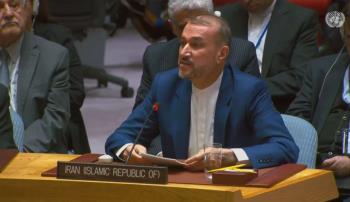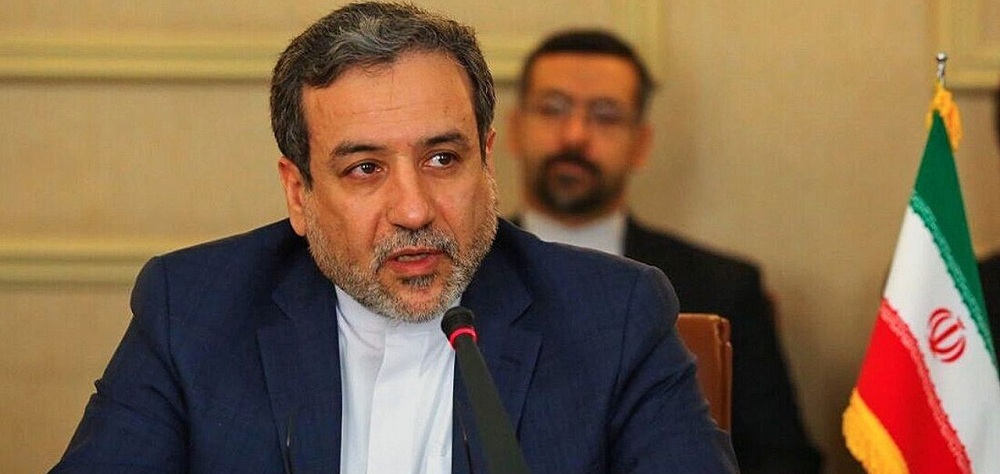Alwaght- While a full-scale war is underway on Iran’s northern borders in Karabakh disputed region between Azerbaijan and Armenia, the Iranian foreign ministry is working on an initiative to put an end to the conflict in Southern Caucasus.
Abbas Araghchi, the deputy foreign minister of Iran over the past few days paid a visit to the countries involved in the Karabakh crisis.
Explaining the Iranian Karabakh peace initiative
According to the Iranian deputy FM, “ending the occupation of Republic of Azerbaijan territories, respecting the human rights and the rights of the ethnic minorities, armistice, and start of the negotiations with the help of the influential countries that can guarantee peace” are the main parts of the Iranian plan.
In his visit to Azerbaijan, Araghchi described the country as “friendly and neighbor” and said that Tehran supports the Azerbaijani push to liberate its occupied cities and regions. According to the senior diplomat, the territorial integrity of Azerbaijan is a key principle that should be saved. Azerbaijani officials welcomed remarks by the special envoy of Iranian President Hassan Rouhani but did not make decisive comments on the Iranian peace plan.
Araghchi also presented the plan to Armenia’s FM Zohrab Mnatsakanyan on Friday. During his meeting with the top Armenian diplomat, Araghchi expressed his concerns about the “transfer of international terrorists from West Asia to the Caucasus.”
Mnatsakanyan told his guest that Yerevan “understands the Islamic Republic’s sensitivity to the emerging threats in the region and welcomes the Iranian role in maintaining regional peace and stability.” He further called the Iranian posture “constructive and responsible” and vowed to consider carefully Tehran’s peace roadmap.
Araghchi then flew to Moscow and Ankara where he elaborated on the initiative to end the ongoing clashes between the armed forces of the two neighbors.
Iran worries about Karabakh developments
Iran has its own serious and considerable worries about what is going on in Karabakh.
The main source of the concerns is the reports of the arrival of terrorist and takfiri fighters from Syria to Karabakh battlegrounds, meaning the region should anticipate more destabilization and insecurity next to the Iranian borders, and this is totally intolerable by Tehran.
So far, Azerbaijani and Turkish sources denied the transfer of Syrian terrorists to the contested region, but some unverified footages depict the presence of the terrorist militias among the forces fighting Armenia.
Additionally, Iran cannot tolerate further shelling on Iranian border villages and farming lands. Iranian military officials several times issued warnings about rockets landing inside the Iranian territories even if they are fired mistakenly into Iran.
These factors are pushing Tehran to have active diplomacy to see a way to the end of the conflict next door.
How successful is the Iranian peace initiative?
The fact that how much Iranian diplomacy is successful in the way towards peace in Karabakh is dependent on the reactions showed by the warring parties. So far, both Azerbaijan and Armenia have expressed their happiness with it.
The second determining factor in the success of the plan is the reaction of the involved sides, including Russia and Turkey. Although Russia sounded upbeat, Turkey has been sturdy in not accepting the cessation of the war and the start of a permanent ceasefire. In the past three truces, which were brokered by Russia and the US, Turkey openly opposed the stop of war due to the “undetermined” status of Karabakh.
However, the affirmative reception of the plan by the two warring neighbors demonstrated that to some extent Iran has succeeded in drawing the satisfaction of both sides, though it is way early to tell if the Iranian pro-peace push is successful or failed.
Many political experts agree that if Baku and Yerevan show flexibility, they can pursue the Iranian initiative. Still, the complication of the Karabakh crisis and also the insistence of the two sides on breaking the ceasefire agreements considered, Iran’s initiative cannot be expected to yield results fast.
The strong point of the initiative is that Tehran calls on Baku to respect the ethnic Armenians’ rights and demands in exchange for regaining its territorial integrity. In other words, the plan bears legal concepts of territorial integrity and self-determination. With these two important points standing in the heart of the plan, it appears that the chance for success of it is more than the similar ones presented to find a final settlement to the crisis and war in Karabakh.



























